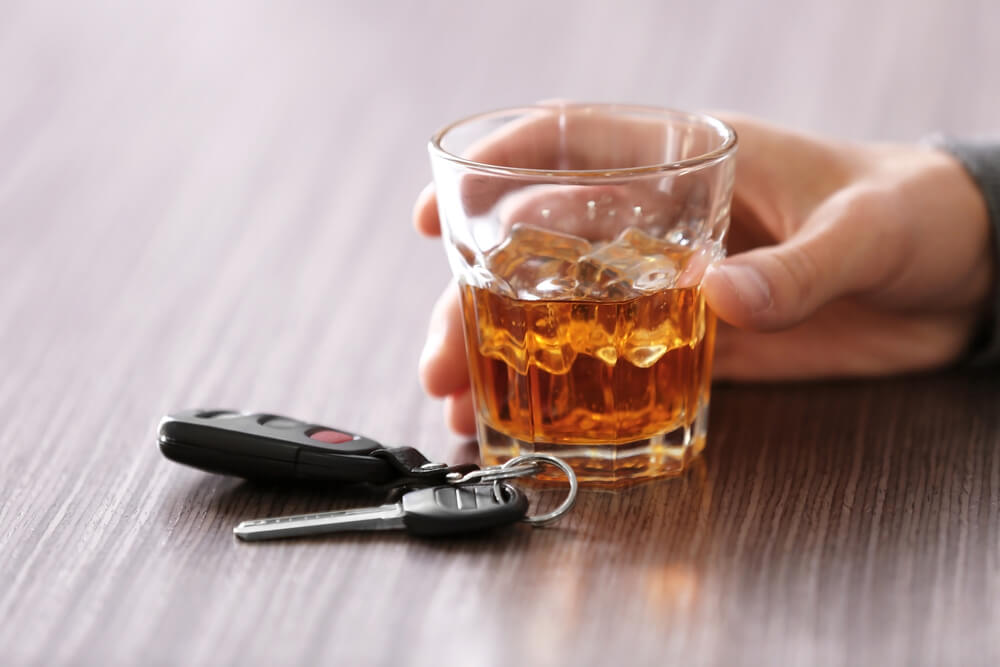Life After SR-22: Restoring Your Insurance Record
SR-22 Insurance: Your Ticket to Redemption
Everyone makes mistakes. Some errors are costlier than others. That’s what you might be thinking if you’ve received legal notice that you can only drive your car after obtaining SR-22 insurance.
What does that mean? How much will it cost you? What if you simply ignore the demand that you get such coverage? And what comes after an SR-22?
SR-22 Insurance: Your Ticket to Redemption
First, what is SR-22 insurance? Well, it isn’t car coverage at all, though it sometimes gets called that. It’s actually state-mandated legal paperwork an insurer must file on your behalf. It’s a guarantee of financial responsibility, which means that you’ve proven you have the state’s minimum required liability protection to cover injuries and damages to other people and personal property damages if you cause an accident.
The reason you must have this guarantee is you’re considered to be a high-risk driver as a result of your prior actions. You can earn that status by convictions for reckless driving, numerous speeding tickets, or other serious driving offenses. One common reason is a driving under the influence (DUI) conviction.
Some states refer to this as driving while intoxicated (DWI) or similar terminology that means the same thing — you were stopped, arrested and convicted of driving drunk or under the influence of drugs.
Often, this or other serious violations will result in the loss of your driving privileges for a specified period of time.
You can actually look at your SR-22 as good news because it means you can drive again, though with various restrictions. You can do some research so you have a better understanding of what you need to know about the SR-22 requirement. The first restriction is you must obtain your state’s required liability coverage. This is what’s often called SR-22 insurance. Your auto insurance agent can file the paperwork with the state on your behalf and get you the auto coverage you need.
How SR-22 Breathes New Life Into Your Driving Privileges
The way you begin to restore your good driving record is by…driving. It’s really that simple.
Drive carefully, observe all posted speed limits, follow all rules of the road, and never drive with even a single alcoholic drink in your system. Follow those few simple tips, and your driving record will clear up on its own.
That’s because even the most serious violations are only saved as negative points on your driving record for a limited period of time that varies by state. The simple act of driving safely will clear up your record over time.
That’s the value of an SR-22. It puts you legally behind the wheel again after serious violations and back on the road to a restored driving record and a restored insurance policy at lower rates.
The Fresh Start: Understanding DUI Expungement
Expungement is the removal of a legal conviction from a person’s criminal record. An offense might be expunged for a number of reasons, such as the infraction being a minor misdemeanor or the violator being a first-time offender.
When it comes to DUI expungement, the rules, conditions — and even availability — vary greatly by state.
Cleaning Your Driving Slate
Having a DUI on your record might keep you from getting a job and have other negative impacts. So it’s understandable that you’d want to expunge that record if you can.
Unfortunately, expungement is only available in about half of the states in the U.S., and sometimes only in situations that might not apply to you. For instance, in some states, it’s only possible if it’s your first offense, you’re under a certain age, or the offense was only a misdemeanor.
In some states, you can use other legal maneuvers to erase your DUI, including an annulment or a pardon. The availability and process for getting a DUI expungement or similar erasure varies by state, so it’s best to consult a lawyer. Your auto insurance agent might also be helpful in this regard.

Navigating the Aftermath of a DUI
Things are going to get tough for a while. There’s no sugarcoating the cost and complexity of dealing with a DUI conviction. Nevertheless, there really is a light at the end of the tunnel.
Cost Implications and SR-22 Insurance
The first thing you should do after a DUI charge is to consult a lawyer. Use a search engine to query “(your city) DUI lawyer” or “DUI attorney” or get a recommendation from a friend or family member.
If you’re convicted and it’s your first offense, you’ll probably get off with a fine, court costs, and temporary loss of your driving privileges. If you’ve had multiple offenses, you might also get jail time.
You’ll get correspondence from the court system to inform you how long your license has been suspended and when you must get SR-22 insurance. Don’t drive without it. You can lose your license for even longer if you’re arrested while illegally behind the wheel.
Your car coverage rates will rise with an SR-22, perhaps as much as double what you used to pay. Put your auto policy agent on your team to help you contain those costs. If you do not inform your insurer about your SR-22 requirement, they will find out when it is time to renew. If you are lucky, your agent has probably filed many SR-22s, so they know what to do and can help you get back on the road as quickly as legally possible. If they decline to insure you, you will have to find some affordable solutions for your coverage.
Keep in mind independent auto insurance agents have contractual relationships with several major insurers. That means they can help you find the most affordable liability coverage on the market.
Planning for the Long-Term
As mentioned, your SR-22 insurance is not something you must have for the rest of your driving life. Vow to do better behind the wheel, and the results of your conviction will melt away over time.
Duration of SR-22 Requirements
It should be acknowledged that SR-22 requirements don’t even exist in about a dozen states. Some states have what’s called an FR-44. One of the differences between SR-22 and FR-44 is that FR-44s are more severe, and they’re only used in certain states. For states that do have SR-22 requirements, the period of time in which a motorist must drive on SR-22 insurance is about three years.
The good news is if there have been no other serious driving violations in that period, you’ll be free of the SR-22 requirements at the end of your state’s time period. However, additional time could be tacked on if you’re found driving without SR-22 coverage or if you have other serious driving infractions.
Maintaining a Clean Record Post-SR-22
This is imperative. You’ll restore your driving record by avoiding additional flashing lights in your rearview mirror. Over time, your auto insurer will also take notice.
Remember, the rates you pay for car insurance are based on what company underwriters see as the odds that you’ll have an accident, resulting in claims being paid out. If they think that risk is high, you’ll pay much more than if they think the odds are low that you’ll have an at-fault accident.
That’s why they look at speeding tickets and other moving violations on your record. If you have few or none over time, you’ll pay less for coverage than if your records are a mess of violations.
Find the Best SR-22 Insurance Deals With Acceptance
You’ve already been through the worst of your infraction. You’ve been arrested, convicted, and had your license suspended. You’ve had to hire a lawyer and pay fines and court costs. Now things are getting better. You can drive again, though, with higher-priced SR-22 insurance.
The independent auto agents at Acceptance Insurance have helped countless drivers obtain the most affordable SR-22 policy and eventually restore their insurance records for lower rates. Let us help you. Simply call us at 877-405-7102 or get a quick online quote for SR-22 insurance. You can also find an Acceptance Insurance office near you.



